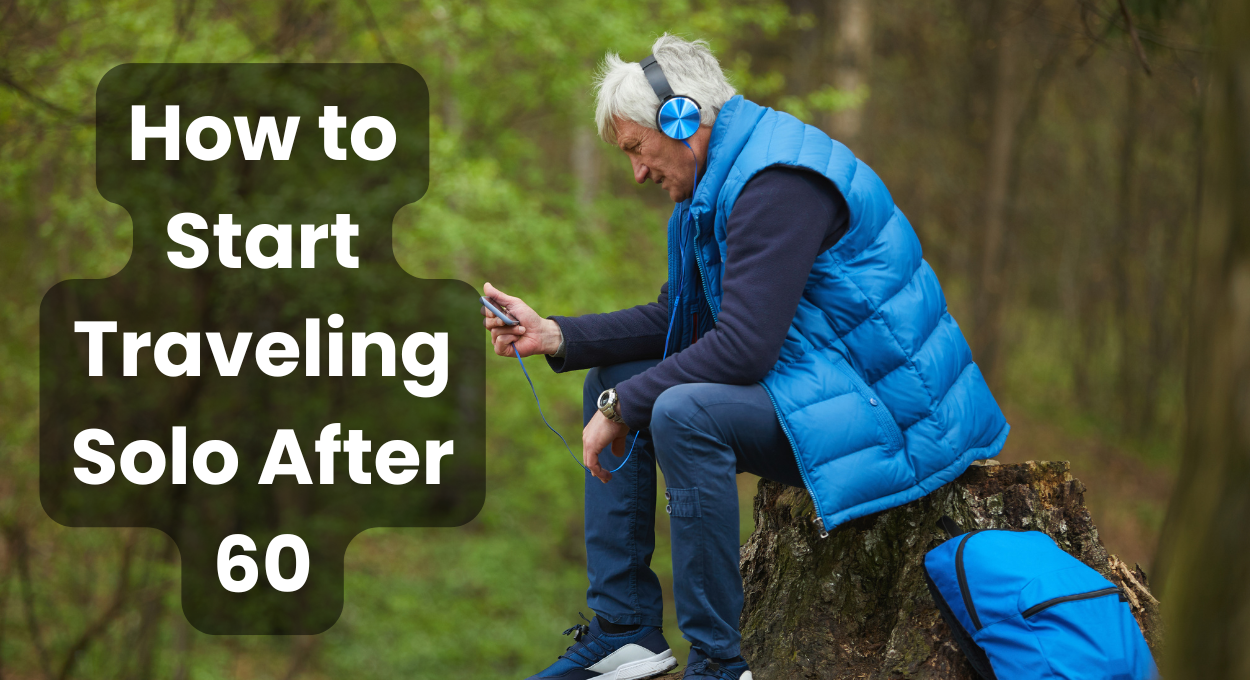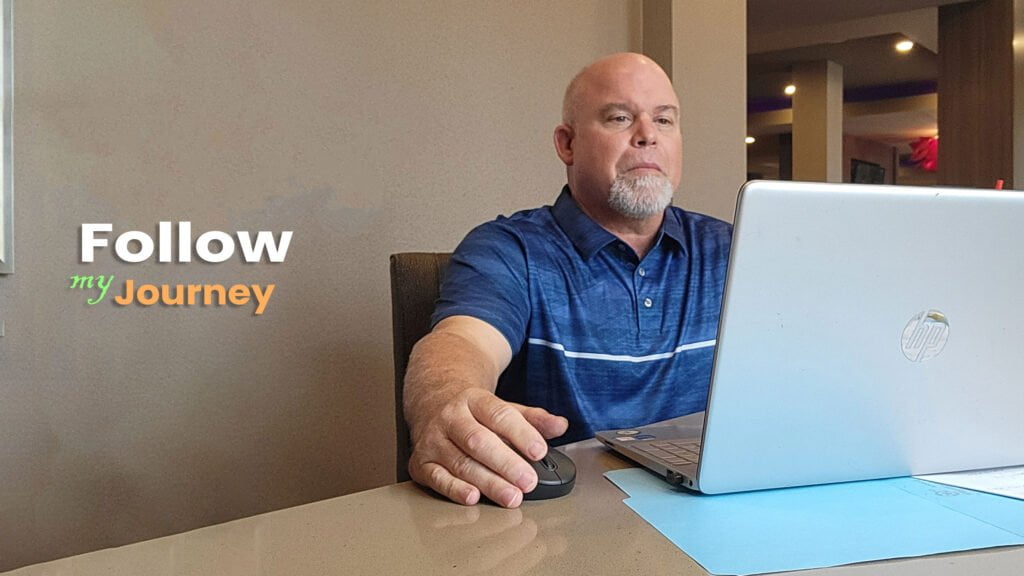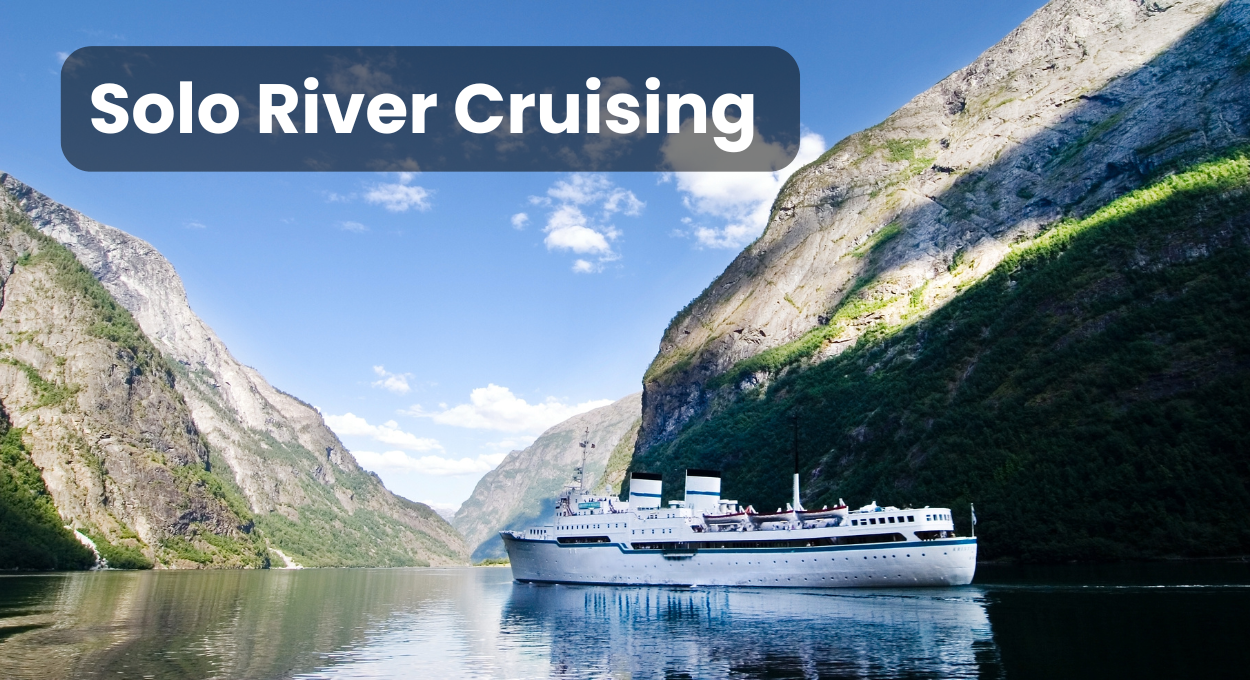When I first considered solo travel as a senior, I was both excited and a bit anxious. It’s a big leap to go off on your own, especially if you’ve spent years traveling with family or friends.
The key is to start small and explore local destinations. Gradually build your confidence before venturing further away.
I found that some of my most memorable experiences happened just a short drive from home, proving that adventure doesn’t always require a plane ticket.
Planning is essential, too. Researching your destination can help ease any concerns you might have about safety or logistics.
I recommend keeping a flexible itinerary that allows for spontaneity while ensuring you have a structured plan.
It’s all about finding that perfect balance that makes traveling enjoyable rather than stressful.
Don’t underestimate the importance of staying connected while you’re on the road. I always make it a point to keep in touch with friends and family, whether through calls or social media updates.
It adds an extra layer of support while you’re exploring new places independently. So, grab your bag and get ready for an empowering journey!
Understanding the Appeal of Solo Travel for Seniors
I’ve found that solo travel can be incredibly rewarding for seniors. It offers a chance to embrace independence and explore at your own pace.
One of the biggest draws is freedom.
When I travel alone, I can create my own itinerary without having to accommodate anyone else’s preferences. I can linger in a cozy café or spend hours at a museum if I choose.
There’s also the opportunity for personal growth. Stepping out of my comfort zone helps me build confidence.
I often find that I’m more open to meeting new people and having unexpected adventures when I’m alone.
Connection to the community is another key aspect. Engaging with locals can lead to meaningful experiences. I’ve joined workshops and attended local events, making new friends along the way.
Safety is essential, and that doesn’t mean I need to stay home. With careful planning, I prioritize destinations that are considered safe and welcoming for seniors.
Researching local customs helps, too.
Solo travel allows me to rediscover my interests. Whether it’s hiking, photography, or simply enjoying nature, I can focus on what truly brings me joy.
Finally, there’s something special about the self-discovery that comes from navigating the world alone.
Each trip teaches me something new about myself and broadens my perspective.
Getting the Green Light from Your Healthcare Provider
Before I pack my bags, I always check in with my healthcare provider. It’s a smart move, especially for seniors.
First, I list any medical conditions I have. This helps me discuss my specific needs during our appointment. Here are some things to consider:
- Current Medications: I make sure I know what I’m taking and if I’ll need refills while traveling.
- Travel Vaccinations: Sometimes, I need to update my vaccines, depending on where I’m headed.
- Emergency Plan: Discussing an action plan for emergencies is crucial. I want to know what to do if a flare-up happens.
I also talk about my destination. Some places have different healthcare systems. I ask about:
- Local hospitals or clinics: This info gives me peace of mind.
- Cultural considerations: Certain areas may have different medical practices.
After our chat, I feel confident and prepared. If I ever hesitate, I remind myself that my health comes first.
Being proactive makes all the difference. I love the freedom of solo travel, but I never compromise on my well-being.
Planning Your Solo Adventure
Getting ready for a solo trip as a senior is exciting, yet it requires some thought.
I’ve found that planning can make all the difference.
By carefully selecting your destination, budgeting wisely, securing comfortable accommodations, and figuring out transportation, you can set yourself up for a rewarding adventure.
Choosing Your Destination
When picking a destination, I suggest focusing on places that match your interests and comfort level.
Think about how far you’d like to travel. Are you craving a sunny beach or perhaps a cozy mountain retreat? Look for locations known for their safety and welcoming atmosphere.
Consider destinations that have activities you enjoy—whether it’s visiting historical sites, hiking, or simply relaxing in nature.
Starting locally can be a great option to ease into solo travel. You might be surprised by how much adventure is just a short drive away.
Pros:
- Familiarity with local customs
- Lower travel costs
Cons:
- May feel less adventurous
- Limited novelty experiences
Budgeting for Your Trip
Creating a budget is essential. I always break down my expenses into categories: transportation, accommodations, food, and activities. This way, I know exactly what I can afford.
Consider setting aside extra funds for unexpected expenses. I’ve learned that having a little cushion helps relieve stress.
- Research local prices for food and attractions to avoid surprises while you’re exploring.
- Don’t forget to look for senior discounts—they can really help stretch your budget!
Pros:
- Keeps expenses under control
- Helps plan for fun activities
Cons:
- May require more time to research
- Can feel restrictive if not flexible
Accommodation Options
Finding the right place to stay is crucial. I prefer accommodations that offer comfort and convenience.
Many seniors enjoy staying at hotels or bed and breakfasts, where staff can assist if needed.
Look for places with good reviews, especially regarding safety and accessibility. Websites like Airbnb can also provide unique options, but make sure to read reviews carefully.
Always confirm your accommodation provides any necessary amenities, like easy access to public transport.
Pros:
- Variety of choices
- Opportunity to meet other travelers
Cons:
- Can vary widely in quality
- May not have the same level of service
Transportation Tips
Transportation can vary based on where you’re going.
For many destinations, it’s helpful to familiarize yourself with public transit options.
I’ve enjoyed using buses or trains as they can offer a unique perspective on a place.
If you prefer driving, consider renting a car but make sure you’re comfortable with local driving laws.
Always check parking availability and costs in advance, especially in urban areas. And don’t hesitate to use rideshare apps if you need a quick and easy way around!
Pros:
- Flexibility to explore at your own pace
- Easier to meet locals
Cons:
- Navigation can be tricky in unfamiliar areas
- Public transport may have limited schedules
Packing Smart and Light
When I started my solo travel journey, packing efficiently made a world of difference.
Here are some practical tips that I’ve found helpful for keeping my bags light and organized while ensuring I have everything I need.
Essential Items Checklist
Creating a checklist is my go-to strategy. It helps avoid last-minute packing stress. Here’s a basic list of what I never leave home without:
- Travel Documents: Passport, ID, tickets
- Money: Credit/debit cards and some cash
- Electronics: Phone, charger, and a power bank
- Personal Items: Toiletries and a small first aid kit
A multi-purpose tool can be handy, as it covers several needs without taking much space. Be sure to customize this list based on your destination and activities.
Pros:
- Keeps you organized.
- Reduces overpacking.
Cons:
- Might forget items if not thorough.
Clothing and Footwear
I stick with versatile clothing that allows mixing and matching. That usually means two pairs of pants and a couple of tops.
Aim for lightweight, breathable fabrics that won’t take up much space. A lightweight jacket is essential for varying weather conditions.
For footwear, I take two pairs: a comfortable pair of walking shoes and something nice for evenings out. This combo works for most outings.
I also roll my clothes instead of folding them; it saves space and helps prevent wrinkles.
Pros:
- Offers flexibility for different occasions.
- Saves space in the luggage.
Cons:
- Limited options if packing too light.
Health and Medication Management
Managing your health while traveling is crucial.
I make sure to pack all necessary medications in their original bottles. It helps with identification at security checks and avoids confusion.
I also bring a small first aid kit that includes essentials like band-aids, antiseptic wipes, and any specific health needs I might have.
For peace of mind, I keep a list of emergency contacts and local healthcare facilities in my phone.
Pros:
- Ensures access to essential medications.
- Provides peace of mind while traveling.
Cons:
- Can take up extra space in luggage.
Staying Safe on the Road
When I travel solo, safety is always top of mind. I’ve found that a mix of personal vigilance, cultural awareness, and being prepared for emergencies makes all the difference. Here’s what I’ve learned.
Personal Safety Practices
First and foremost, trust your instincts. If something feels off, it probably is.
I always stay in public spaces, especially when meeting new people. Keeping my belongings close is critical. I use crossbody bags to deter pickpockets and ensure important items are locked away in hotel safes.
Also, consider giving your itinerary to a trusted friend or family member. Regularly checking in with them provides an extra layer of safety.
If I’m in a busy area, I opt for wearing simple clothes that don’t draw attention.
Pros:
- Increased vigilance keeps you alert.
- Sharing plans with others offers extra security.
Cons:
- It can feel restrictive or paranoid at times.
- Sometimes, you might miss spontaneous social interactions.
Navigating New Cultures and Customs
Understanding local customs can prevent misunderstandings. Before visiting a new place, I invest some time in research.
Learning a few phrases in the local language goes a long way in showing respect.
I also pay attention to local dress codes. Dressing appropriately not only helps blend in but reduces unwanted attention. When in doubt, observing locals can guide your behavior.
Travel guides and forums are fantastic for insights. I’ve gotten tips on local etiquette that saved me from an embarrassing moment or two.
Pros:
- It enhances your travel experience and shows respect.
- Locals may be more willing to help you out.
Cons:
- Misunderstandings can still happen despite best efforts.
- It can be overwhelming to learn everything at once.
Emergency Preparedness
It’s crucial to have a plan in place.
I always keep copies of important documents, like my passport and insurance, in a separate location from the originals.
Having a local emergency number saved me once when I needed quick assistance.
A portable charger for my phone is a must. It helps me stay connected and find resources as needed.
I also suggest carrying a small first aid kit with basic supplies.
Lastly, consider travel insurance for added peace of mind. It’s worth the investment when you think about potential mishaps.
Pros:
- Being prepared minimizes stress during crises.
- Quick access to resources can prevent bigger issues.
Cons:
- Preparing can feel tedious.
- Some emergencies may still catch you off guard.
Embracing Technology for Ease of Travel
As I started my solo travel journey, I found that technology became a trusted ally. From planning my itinerary to staying connected with family, using the right tech tools can enhance the travel experience significantly.
Must-Have Travel Apps
First things first, I recommend downloading a set of must-have travel apps. These can streamline planning and make navigating new places easier.
- Google Maps: Essential for navigation. I rely on it for finding directions, attractions, and even restaurants nearby.
- TripIt: Perfect for organizing travel plans in one place. You can forward your confirmation emails and see your itinerary at a glance.
- Airbnb or Booking.com: Useful for finding accommodations that fit your needs.
- Duolingo: If you’re traveling to a non-English speaking country, this app helps you learn basic phrases.
These apps reduce travel anxiety and give me more confidence as I explore new places.
Keeping in Touch with Loved Ones
Staying connected while traveling is crucial, especially for a solo traveler like me. Here’s how I keep in touch:
- WhatsApp: A lifesaver for free messages and calls using Wi-Fi. I can share updates and photos with family instantly.
- Skype or Zoom: Great for video calls to feel closer to home. I often set a regular call time to keep in touch.
- Location Sharing: Apps like Google Maps allow me to share my real-time location with loved ones for added safety.
These tools ensure that I never feel too far from home, giving both me and my family peace of mind as I explore.
Managing Finances and Documents Online
Managing finances can be a bit daunting while traveling, but technology simplifies it. Here’s what I do:
- Banking Apps: I use my bank’s app to monitor transactions and make sure there are no unauthorized charges.
- Budgeting Apps: Tools like Mint help me keep track of my spending. I input expenses daily to stay on top of my budget.
- Digital Copies of Important Documents: I always have digital backups of my passport, tickets, and insurance on my phone with apps like Dropbox.
Pros and Cons of Embracing Technology for Travel
Pros:
- Convenient access to information
- Ability to stay connected
- Simplifies financial management
Cons:
- Reliance on device battery life
- Potential tech issues abroad
- Security concerns with personal data
Building Confidence for Solo Senior Travel
Feeling a bit hesitant about solo travel is totally normal, especially for us seniors.
I’ve found that gaining confidence comes from connecting with like-minded people and having some hands-on experience.
Here are a couple of strategies to help you ease into the solo travel adventure.
Joining Travel Groups and Forums
I’ve discovered that joining travel groups can be a game changer. You get the chance to meet other seniors who share your interests and concerns.
Websites like Facebook and Meetup often have local groups focused on travel. These communities are full of tips and support.
Participating in discussions can help ease any worries I might have about traveling alone. I’ve learned so much from others’ experiences that have prepared me for my trips. Plus, it’s a great way to make friends! Look out for travel forums specifically for seniors, where you can ask questions and gain insight from seasoned travelers.
Taking Short Trips to Gain Experience
Nothing builds confidence like hands-on practice. I recommend starting with short, local trips.
This could be a weekend getaway to a nearby city or even a day trip to a national park. The key is to keep it simple.
As I took these little adventures, I learned how to navigate unfamiliar places while building my confidence.
I also became comfortable with planning my itinerary. Each trip made me feel stronger and more capable.
Plus, I found joy in the unexpected, which is all part of the adventure!
Creating Memorable Experiences
When I travel solo, the moments that stick with me often come from connecting with others and capturing my journey.
Engaging with locals and fellow travelers enriches the experience, while documenting my adventures helps me cherish those memories long after the trip ends.
Engaging with Locals and Travelers
I’ve found that some of the best travel experiences come from chatting with the locals. They can share hidden gems, which you would never discover through a guidebook.
Here are a few tips:
- Learn a Few Phrases: Knowing basic greetings or questions in the local language breaks the ice.
- Join Local Events: Look for festivals, markets, or workshops. They provide a fantastic opportunity to meet others.
- Stay in Hostels or Guesthouses: These places often have communal areas where interaction is encouraged.
Connecting with fellow travelers can also be rewarding. I’ve shared meals, swapped stories, and even made travel plans together.
The friendships built during these moments often become the highlights of my trips.
Documenting Your Journey
Keeping a travel journal has been one of my favorite practices. I jot down thoughts, sketches, or even ticket stubs. Each entry helps me remember the nuances of every experience.
Additionally, I love taking photos. Here’s what I prioritize:
- Capture Details: Instead of just landscapes, I focus on textures, colors, and candid moments.
- Use Your Phone: It’s easy and handy for quick snapshots.
- Create a Blog or Photo Album: This lets me compile my adventures and share them with friends and family.
Returning Home: Reflections and Connections
Coming back home after a solo adventure can feel a bit surreal. I often find myself reflecting on the experiences and memories I created.
It’s amazing how traveling alone can change your perspective.
I like to jot down my thoughts as soon as I return. A simple notebook works wonders. Here’s what I often include:
- Highlights of the trip: Those special moments that made me smile.
- Lessons learned: Insights about myself or new skills I picked up.
- Connections made: People I met and stories we shared.
Reconnecting with friends and family is another important part. I make it a point to share my experiences over coffee. It feels good to relive those memories together.
I also enjoy sharing photos. A good slideshow can bring back all the excitement. Sometimes, I’ll create a small photo book to keep the memories tangible.
Traveling solo teaches me resilience and self-discovery. Each trip leaves me feeling more connected to myself and others.
I cherish the friendships I build, even if they’re brief.
So, when I get home, I don’t just unpack my bags—I unpack my memories. Connecting those experiences to my everyday life enriches my routine and helps me appreciate the journey even more.







